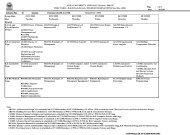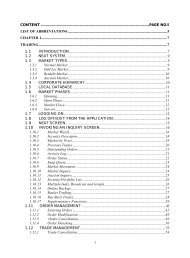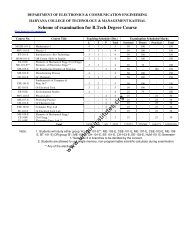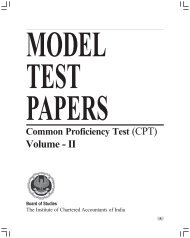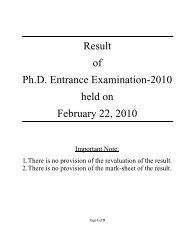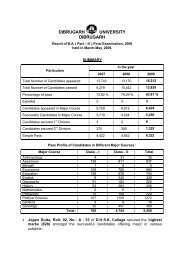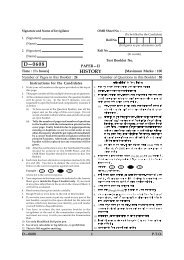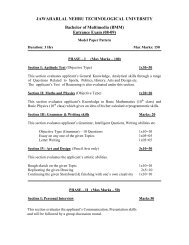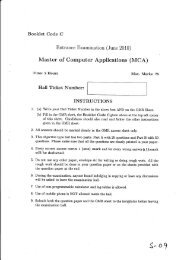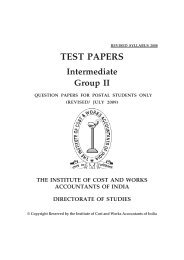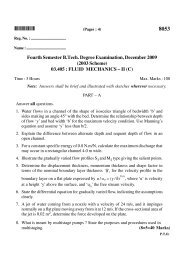UNIT – I Lesson 1 HRM – AN OVERVIEW Lesson Outline Nature of ...
UNIT – I Lesson 1 HRM – AN OVERVIEW Lesson Outline Nature of ...
UNIT – I Lesson 1 HRM – AN OVERVIEW Lesson Outline Nature of ...
Create successful ePaper yourself
Turn your PDF publications into a flip-book with our unique Google optimized e-Paper software.
3.19 Personnel Empowerment<br />
Empowerment is recognizing and releasing into the organization and the power that<br />
people already have in their wealth <strong>of</strong> useful knowledge and internal motivation.<br />
Understanding the concept <strong>of</strong> power is a prerequisite to the comprehension <strong>of</strong> the contours<br />
<strong>of</strong> empowerment. Primarily, the term ‘Power’ refers to an individual's capacity to<br />
influence the behavior and attitudes <strong>of</strong> others. This usually also results in the ability to<br />
influence events, decisions and possessions. It can be used productively or destructively.<br />
Empowerment means giving or restoring a person or group more power. Oxford<br />
Dictionary describes the word empower to mean endowing with the ability or power<br />
required for a purpose or task. Empowerment could be facilitated by providing people the<br />
access to information and resources and ability to share their views to impact their own as<br />
well as organization’s future.<br />
Only the people, through education, coalition building, community organizing,<br />
resource development, or advocacy assistance, might be able to achieve empowerment for<br />
themselves. A mediator, who can work with the lower power person or group to help them<br />
represent themselves more effectively, can also achieve it. The word empowerment also<br />
refers to authorization and permission to operate on one’s own accord to a reasonable<br />
extent in certain situations without having to get approval from anyone else. It is<br />
sometimes described that empowerment seeks to restore in employees a sense <strong>of</strong> their own<br />
value and strength and their own capacity to handle life's problems. Management writer<br />
Tom Peters considered empowerment as a necessary condition to improve zest, creativity<br />
and automatic symbiosis with the customers. Empowerment involves giving employees a<br />
greater degree <strong>of</strong> control in organizational operations through management’s participation.<br />
Personnel Empowerment is a trust-based relationship. It can be described as a way<br />
<strong>of</strong> working together that is fundamentally different from the traditional notion <strong>of</strong> top-down<br />
command and external control. It is a condition that entails vesting greater degrees <strong>of</strong> selfdetermination,<br />
responsibility and trust in all employees so as to support and liberate people<br />
rather than diminish their range <strong>of</strong> thought and action. Paradoxically, in an empowered<br />
workplace, people tend to feel both freedom and self-control. Thus, empowerment leads to<br />
a situation in which employees’ commitment and engagement would be released to such<br />
an extent that ordinary personnel achieve extraordinary performance.



